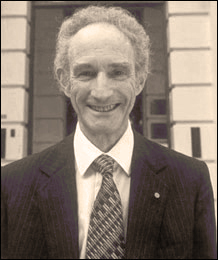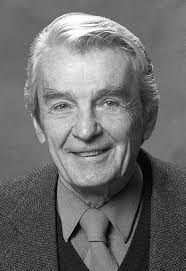Knowledge Work Has a Flat Tire
Contents
Knowledge Work Has a Flat Tire
At the workshop that Knowledge Federation organized at July 2011 Triple Helix IX Conference at Stanford University, we motivated the work of Knowledge Federation by telling the following vignette.
– We must be unified in informing the public about the risks and causes of climate change.
A couple of years ago a prominent British scientist, Lord Robert May of Oxford, visited the University of Oslo, accompanied by Mrs. Tora Aasland, the Norwegian Minister of Science and Higher Education. Lord May, whose curriculum vitae includes such titles as ‘The President of The Royal Society’ and ‘The Chief Scientific Advisor to the UK Government,’ came to tell us that the habitual practice in the press, where a ‘balanced’ opinion is provided by voicing contradicting points of view, had an unfortunate consequence that the public now believes that the opinions on climate change are divided. In truth, said Lord May, the climate researchers are unequivocal about the fact that the climate change is an alarming effect of human activity, and that we must change the way we act. He emphasized as his main point that the question is not what needs to be done because that is clear, but whether we will be able to mobilize the public to implement the changes that are obviously necessary.
– The climate has never been so stable.
Then a bit later another prominent scientist visited the University of Oslo – Professor Emeritus Ivan Gjaever, Norwegian Nobel Laureate in Physics. Dr. Gjaever came to tell us that the climate change is no more than a popular myth. “It is surprising how stable the climate has been during the past 150 years,” he later reported in a featured article in Aftenposten (Norwegian equivalent to New York Times). His rhetoric was poignant: “The smart heads have found out that the climate is changing because of the climate gas CO2 in the air. CO2 concentration has indeed increased rather steadily (...) Other smart heads that worked for the tobacco industry in the USA found out around 1980 that lung cancer was caused by margarine, because the consumption of margarine grew in the same rhythm as lung cancer.”
(What Aftenposten did not tell us – but Wikipedia did – might provide a clue to this puzzle: “Giaever is a fellow at the Heartland Institute. In the 1990s, the institute worked with the tobacco company Philip Morris to question the science linking secondhand smoke to health risks, and to lobby against government public health reforms. More recently, the Institute has focused on questioning the scientific consensus on climate change, and has sponsored meetings of climate change skeptics. Oil and gas companies have contributed to the Heartland Institute, including over $600,000 from ExxonMobil between 1998 and 2005. According to Rensselaer Polytechnical Institute, the University of Oslo and Google Scholar, Dr. Giaever has not published any work in the area of climate science.”)
Knowledge work has a flat tire!
If after hearing the quoted opinions of prominent scientists you might be tempted to conclude that nothing can really be claimed with sufficient certainty about this important matter, we offer you a conclusion that does follow from our story: Knowledge work has a flat tire! By this we mean that rushing to write our next research article or news report (or metaphorically ‘pressing the gas pedal and surging ahead’) is no longer the way to reach our destination (an informed public). Our situation calls for interrupting the business as usual and taking care of a structural problem.
The conventional practice is obviously not the best way to organize our ‘smart heads’ together around the task of informing the public about a critical issue. We may have highly knowledgeable and able individuals. But as society, that is collectively, we remain ignorant and indecisive – as long as what we are given are individual views, and the impossible task of combining them together.


